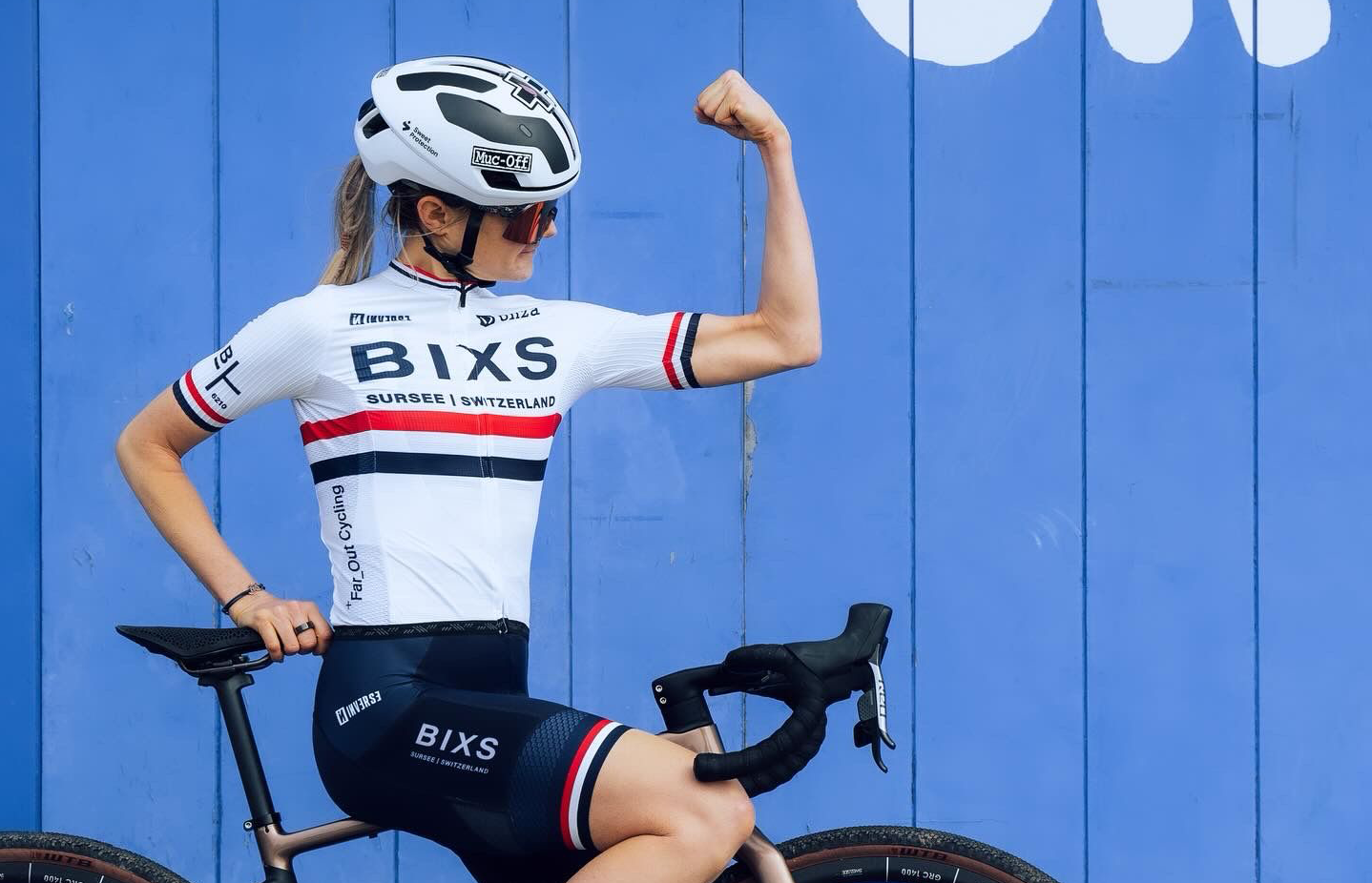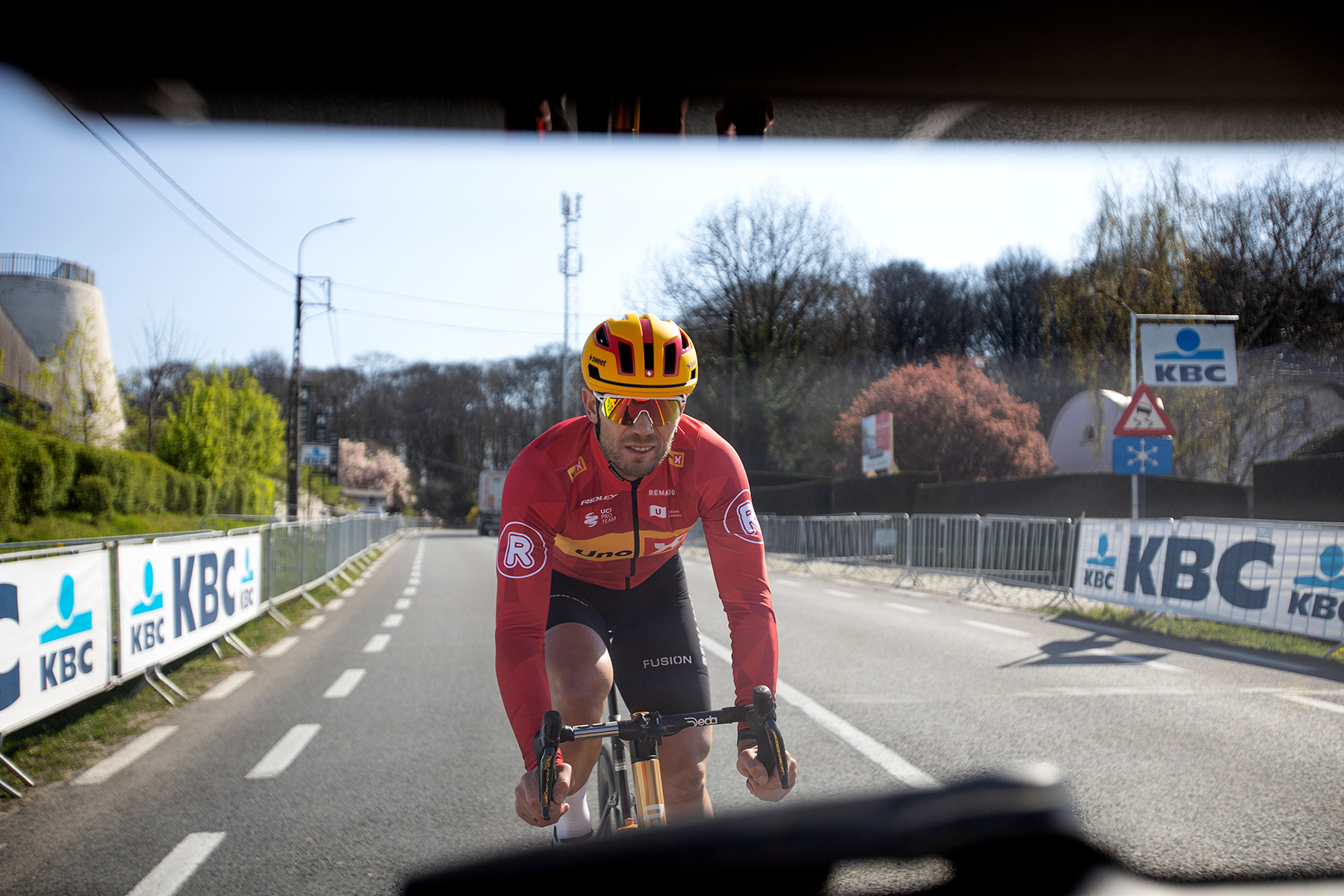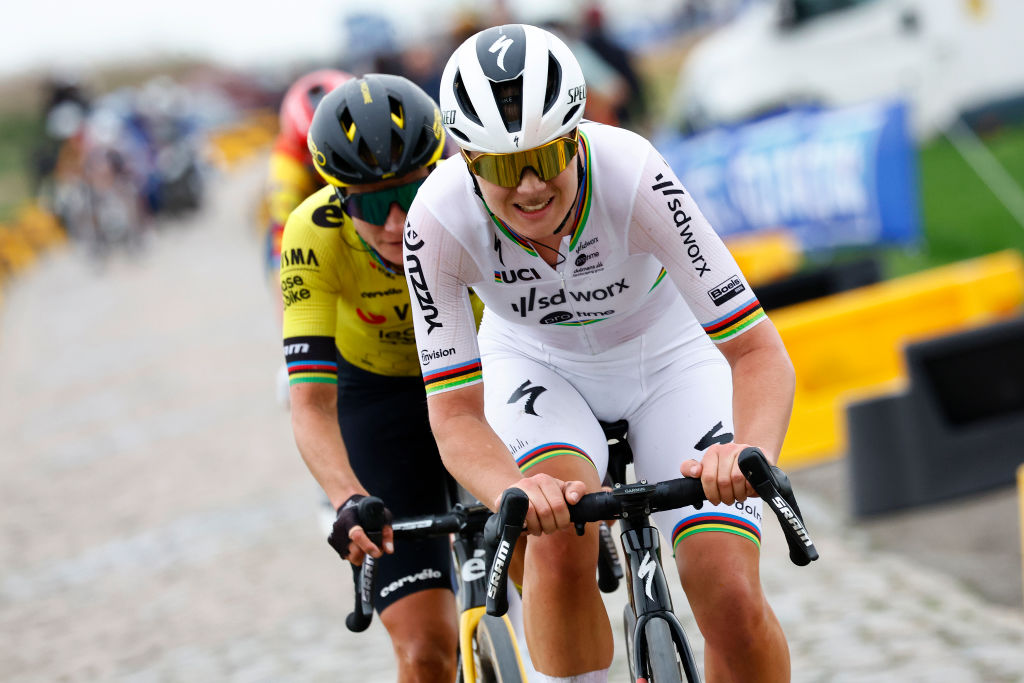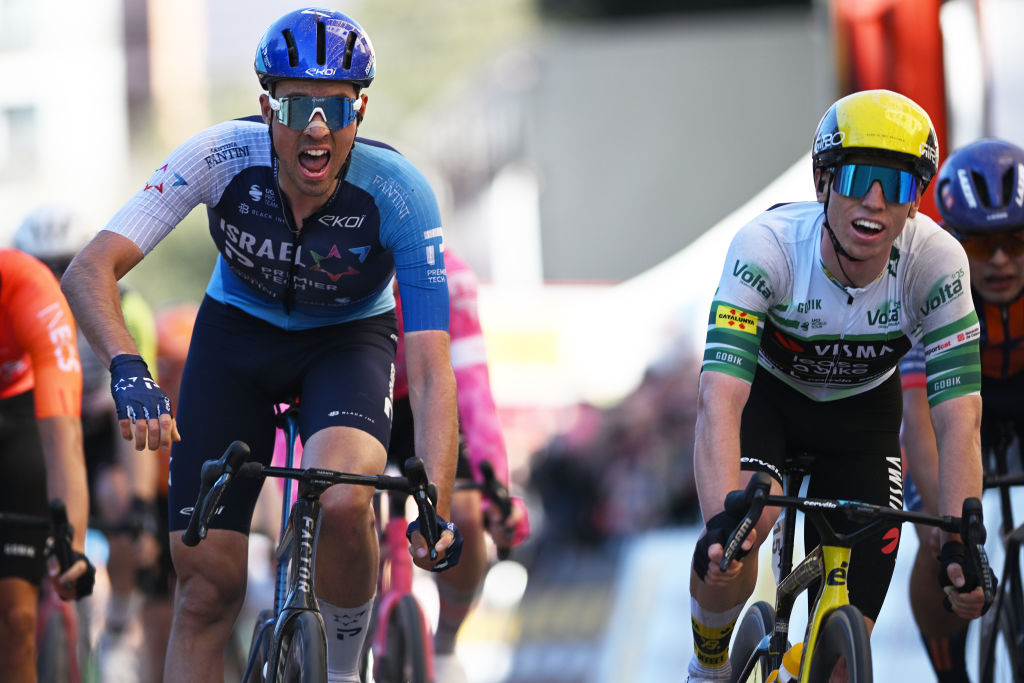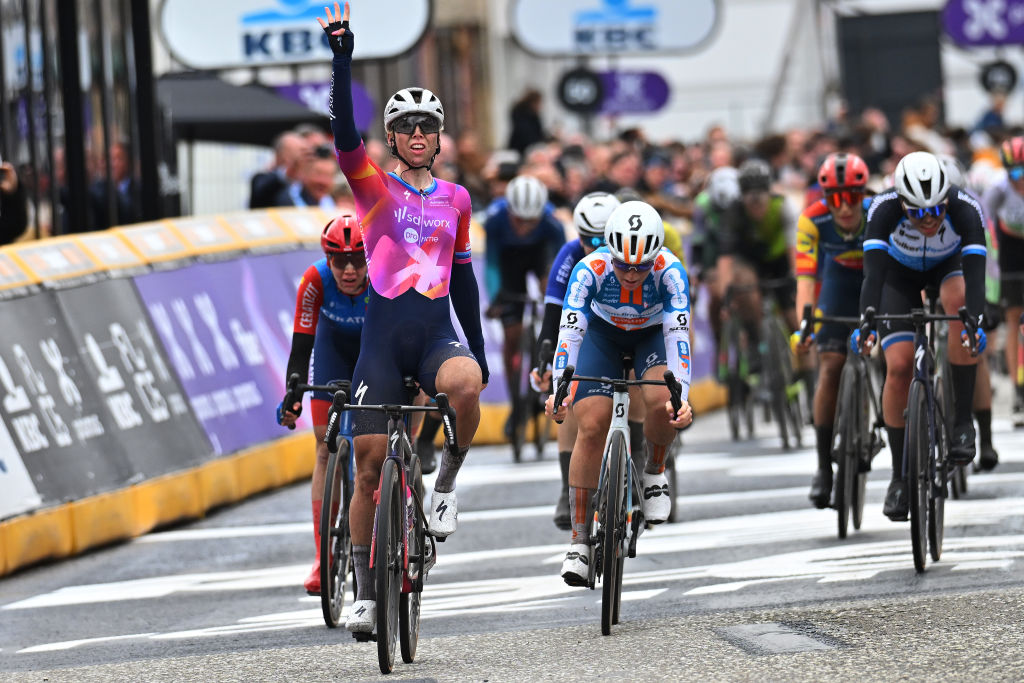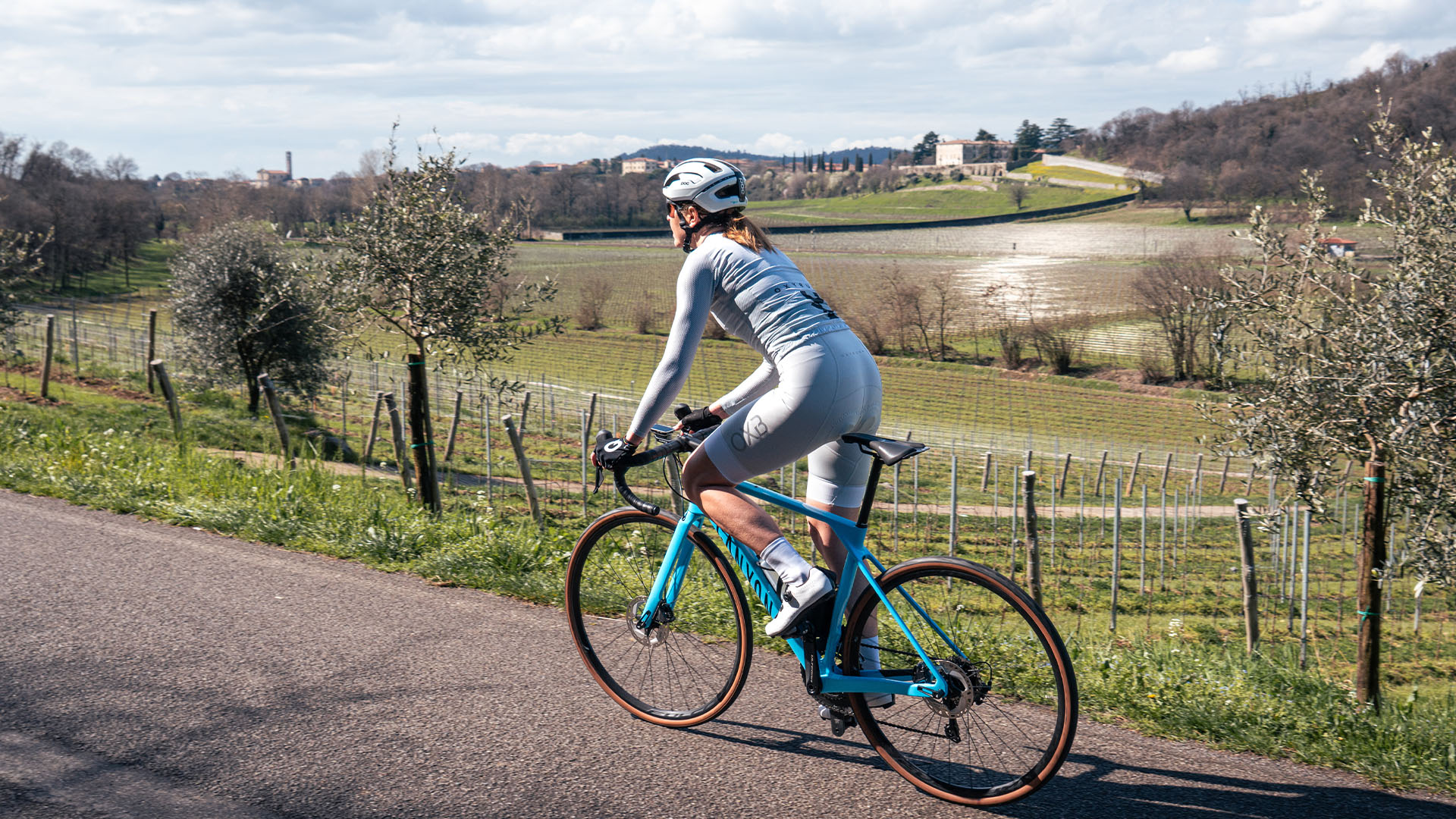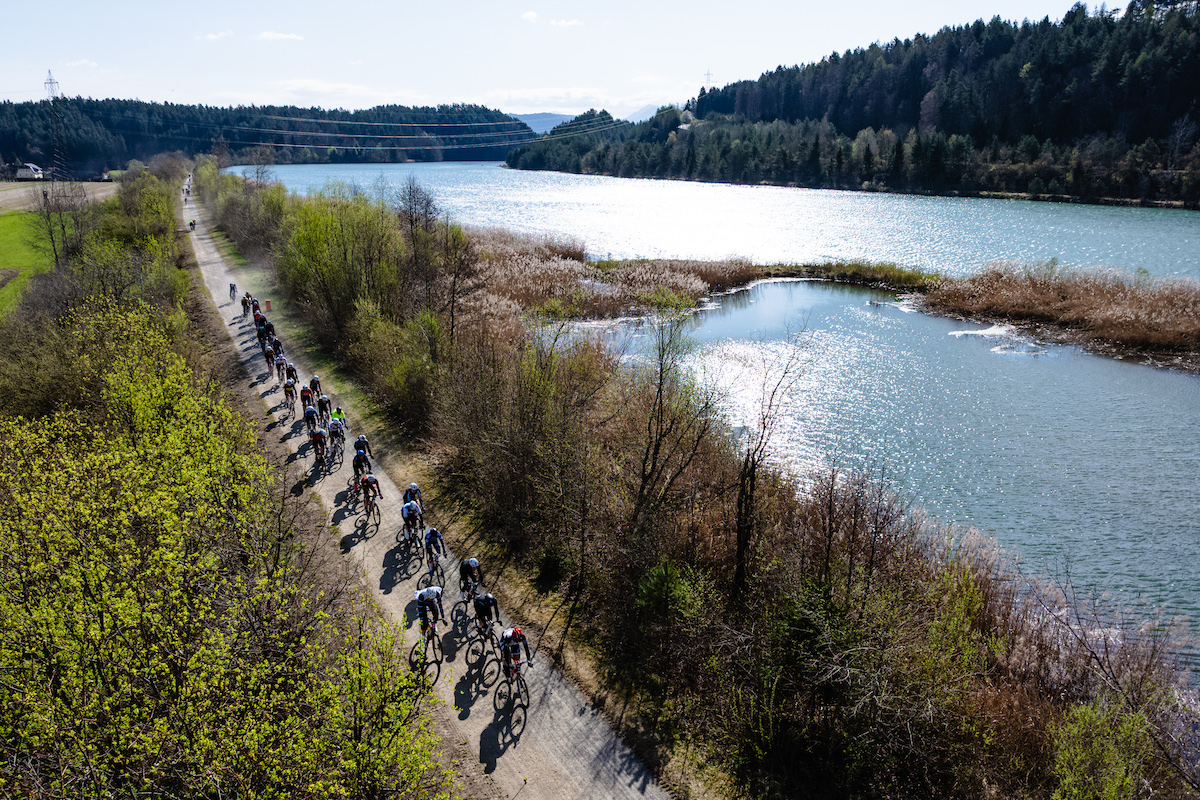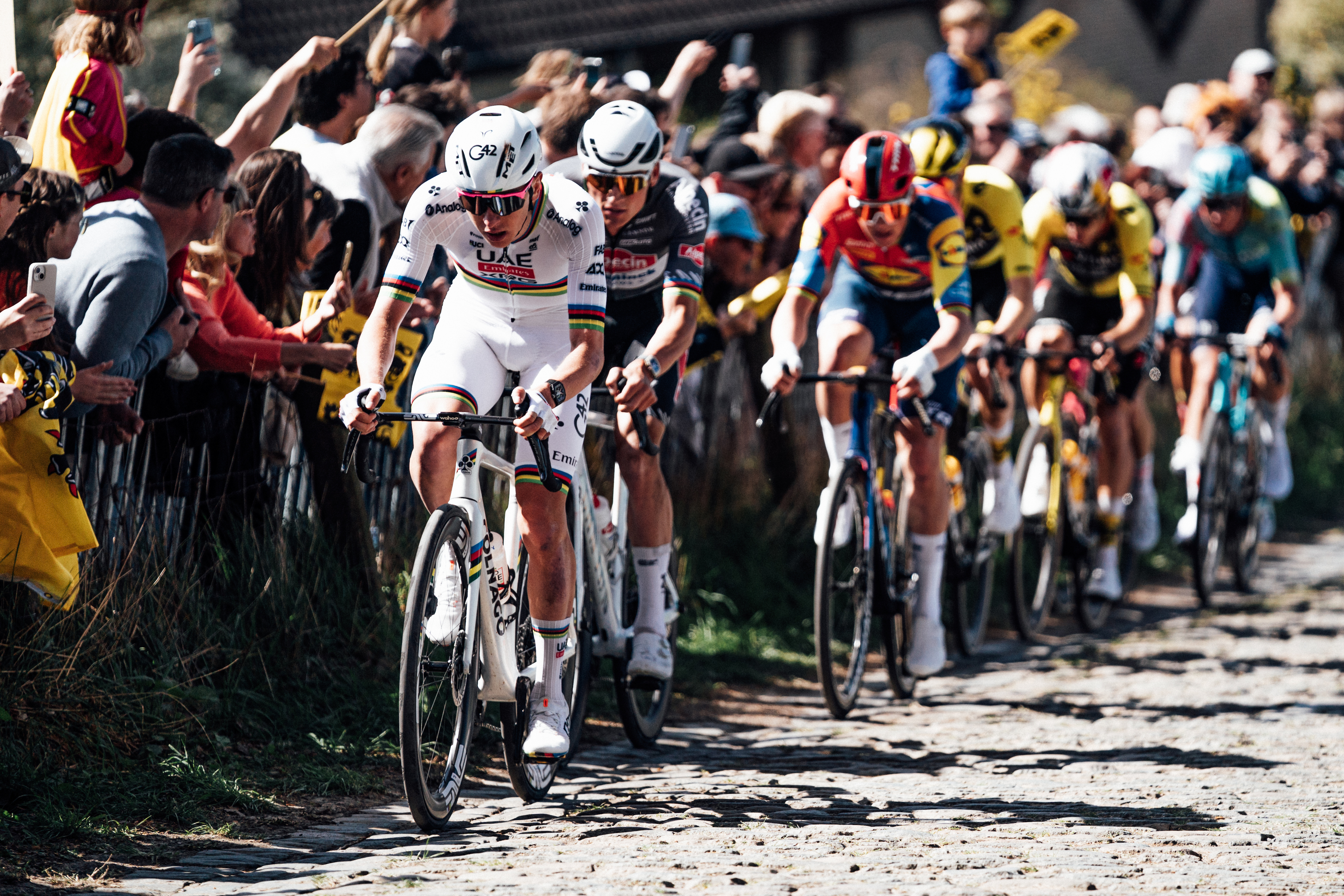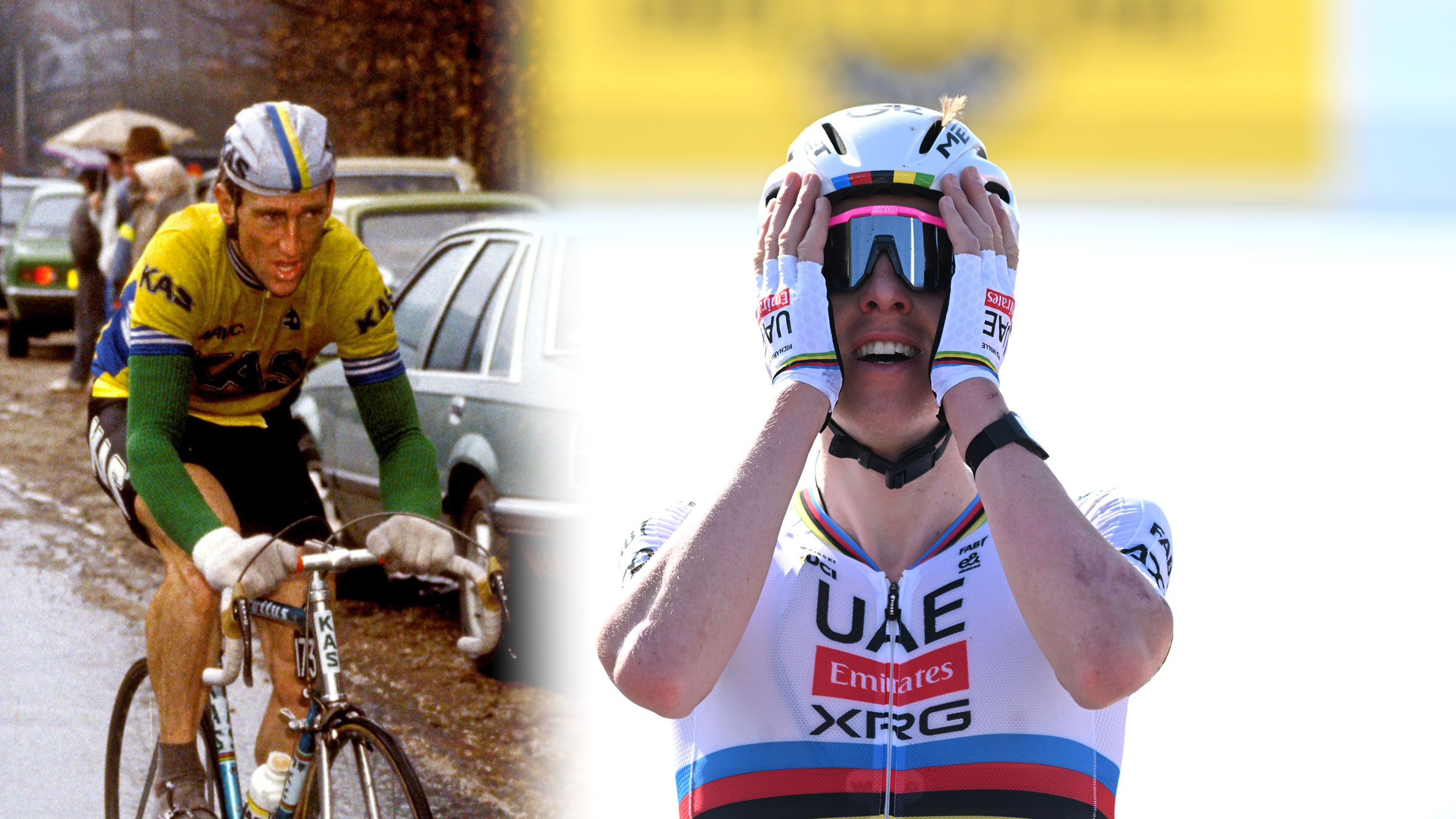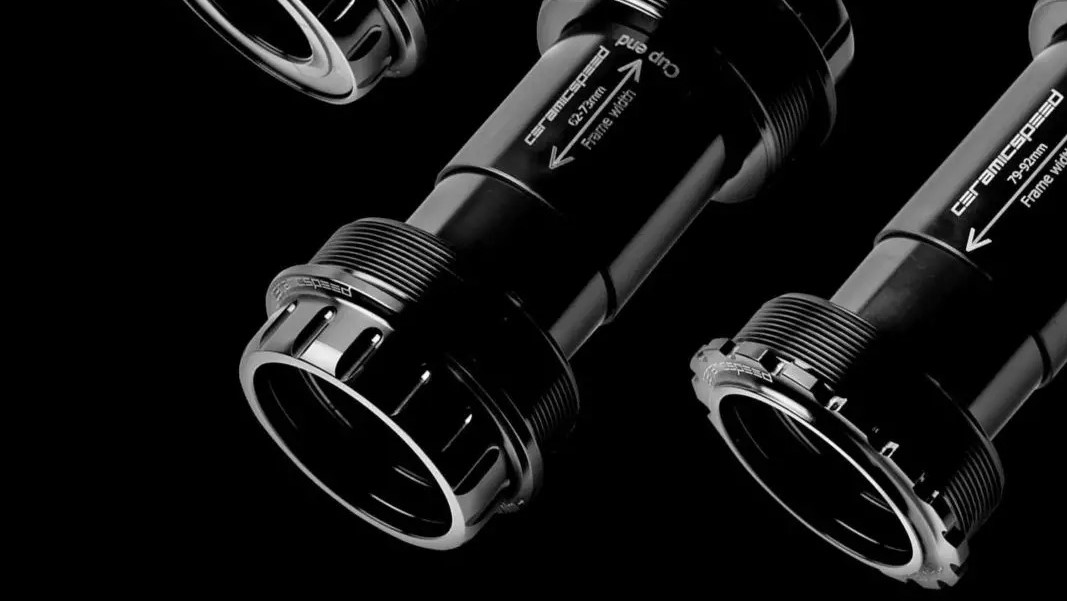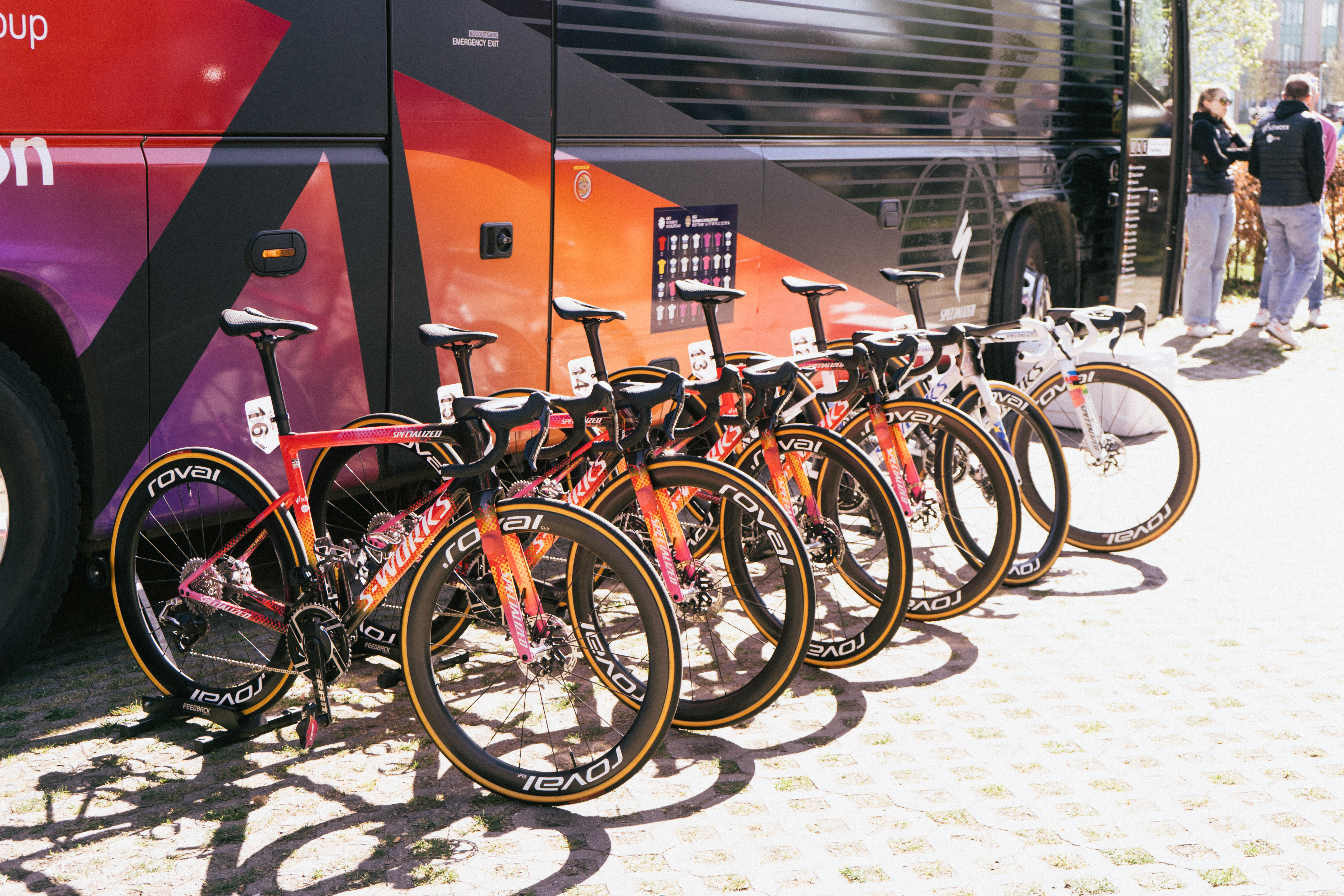Mauro Vegni: We can’t allow ourselves to make mistakes at the Giro d’Italia
Race director on the coronavirus bubble and how his event has too many teams
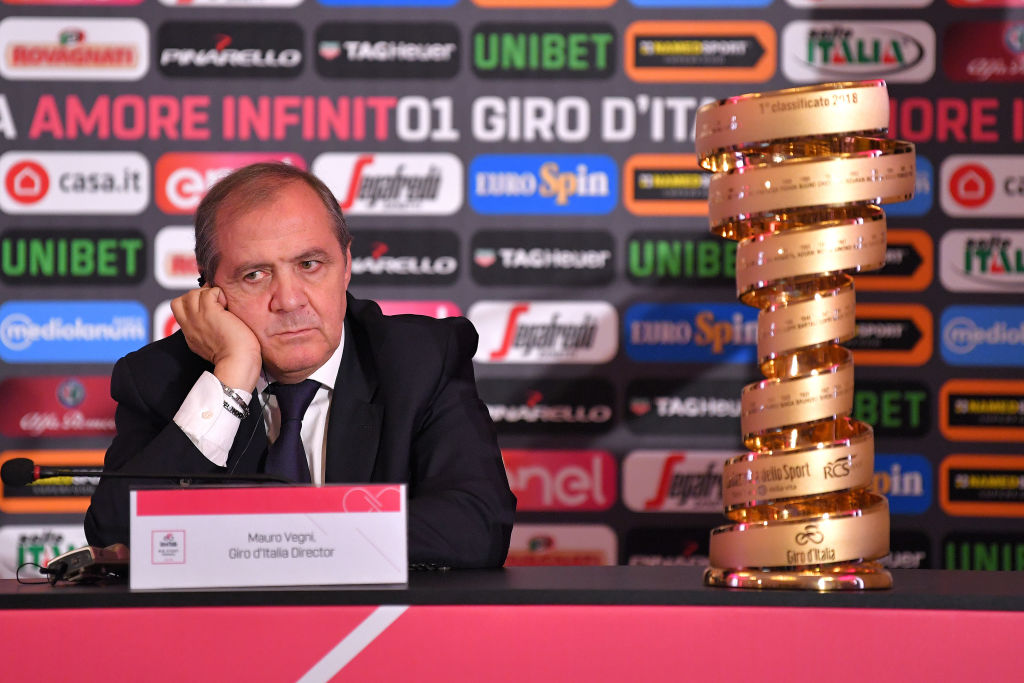
As the Giro d’Italia progressed last October, the days were growing shorter and the shadow of the second wave of the coronavirus pandemic was growing longer. Even before the pink and gold confetti from the final podium ceremonies had been swept off the cobbles of Piazza Duomo in Milan, tighter coronavirus restrictions were being signed into law in Italy, but the Giro d'Italia had – just – managed to run its course before the shutters were gently lowered across the country.
“When we went to 8 or 9,000 new cases a day in Italy in mid-October, I was a bit concerned, but I was still confident that we could complete the Giro,” race director Mauro Vegni tells Cyclingnews in Turin ahead of the 2021 edition of the race.
Just six months have passed since Tao Geoghegan Hart was feted in Milan, and there has been no respite for Vegni, who has had to patch together a route for the 2021 race in record time. The pandemic means that foreign excursions are limited to brief, in-stage forays over the border to Slovenia and Switzerland, while coronavirus restrictions remain in place all over Italy, including a 10pm nationwide curfew.
The situation might not be as obviously precarious as it was last October, but Vegni warns that caution is of the essence as he takes a seat in the courtyard of the Arsenale della Pace on the eve of the Giro.
“We’re not as convinced as we were last year that the worst of the pandemic is over. We know there can be moments of stability, but also moments where the problem of contagion can flare up again, so we’re very attentive,” he says. “We can’t allow ourselves to make mistakes.”
Over the next 45 minutes, Vegni runs the rule over the many moving parts of his brief as race director, from the coronavirus bubble to rider safety, from the thorny issue of wildcard invitations to RCS Sport’s straitened economic circumstances amid the pandemic.
Cyclingnews: What did you learn about holding the Giro during a pandemic last year and what, if anything, is different about the bubble this time?
Get The Leadout Newsletter
The latest race content, interviews, features, reviews and expert buying guides, direct to your inbox!
Mauro Vegni: We learned that you can’t trust anything or anyone. For example, the riders’ bubble is very fragile. I realised, and I don’t want to name names now, that many teams were bringing in people from outside the so-called bubble last year. Fortunately, they didn’t create big problems in terms of contagion, but we can’t allow things like that anymore.
We have to do more tests, also using antigenic testing, so we can have constant screening. In the first week, above all, we’ll try to do as many tests as possible to make sure there aren’t going to be any problems. We did tests 72 hours before the start but we know that the virus can incubate for five to seven days, so you need to do another test after five days to verify everybody is clear. We will seek to increase the number of tests.
CN: Does this mean there will be mandatory coronavirus testing beyond the pre-race and rest day testing we saw last year?
MV: You saw last year that we did molecular tests on the rest day, and that’s only right and proper. But we also have to have the possibility of testing outside of those rest days to protect the health of everybody and lower the risk of infection at the race. So the more tests we carry out, the more we can guarantee the riders and teams in the bubble.
CN: Are the teams willing to undergo these additional tests?
MV: We’ve told them. We tested everybody on Thursday, but it’s nine days until the next rest day, so we need to have at least one or even two more tests before then to make sure. It’s easier to do this at the start of the race than at the end, because it’s the start and they’ve only just arrived in the bubble. Once they’re safely in the bubble, it’s then a question of staying attentive.
CN: You weren’t pleased with the way Jumbo-Visma left the race last year or with how EF-Education First’s manager, Jonathan Vaughters, called for the Giro to end after two weeks. Have you spoken with those teams in the intervening period?
MV: We have spoken. I have to say that the problem with EF was a bit strange because there was a discrepancy between what the team at the Giro thought and what the manager said off his own bat. When his announcement was made, the team came to me and said they had decided to continue. The problem there came from the one who made that announcement, which in some way sought to delegitimise what we were trying to do with the Giro.
Later on, I spoke with [Jumbo-Visma manager Richard] Plugge. He said that they weren’t acting against the Giro but to safeguard their riders. I told him that in a situation like that, you must discuss it the night before at the very least, and certainly not a quarter of an hour before the stage. And how can they say that health wasn’t being safeguarded? We did over 6,000 swabs. I don’t believe there were many places in the world where people were being tested five or six times within 20 days, and considering how the level of contagion was rising so much elsewhere, I don’t think it went badly at the Giro, with just, I think, eight cases.
I wasn’t very pleased with it, but according to the UCI, there was no way to take action against these teams. With Jumbo, we reached a gentleman’s agreement. When they make a mistake, it’s right to point that out, and when they come to you admitting they made a mistake, then it’s right to come to an agreement like intelligent people.
CN: There were also last-minute discussions with the riders ahead of the rerouted stage 19 to Asti. There is another long, flat stage in the third week this year – did you discuss the route beforehand with the CPA?
MV: They have everything, they know everything – as they did last year. But here, too, it seems the UCI can’t do anything when you’re the one seeking damages from others. Although when you make a mistake yourself, they’re ready to sanction you.
And it’s pointless saying things that aren’t true, like that the riders made a real race of it after we shortened the stage. What race? The only one who made the race was Peter Sagan, who really tried to race, but all the rest of them didn’t and so he was forced to stop too. In the end, we had ten riders out in front and the rest were like this [mimics folded arms] until the finish. It was shameful. I repeat: shameful. Maybe those riders should have gone back to working the land instead.
CN: The strike last year raised questions about the CPA’s effectiveness as a representative body for the riders.
MV: We have to say it clearly: it wasn’t well managed by the CPA. They should have come to see me the day before if the riders had a problem. It shows that they didn’t manage it at all. They just hoped that it would blow over, but instead that didn’t happen, which means that they didn’t manage the situation.
I’ve spoken with them before the Giro. They didn’t come out of it well last year. I think they need someone with the balls to say, ‘Enough, we’ll discuss these things within the CPA and not in the middle of the road.’ I said it clearly. They have to discuss the riders’ problems and bring them to us, but at the right time – not in the middle of the race or right before a stage starts. In the gruppo, if you speak to individuals, they all say, ‘well, I wasn’t the one who wanted it [the strike].’ But when there’s a spark, they all get into line behind it.
CN: Rider security remains a pressing issue, and it was brought into greater focus by what happened at the Tour de Pologne last year. Are there any security developments on the 2021 Giro, such as improved barriers?
MV: The barriers we use are among the most secure because they’re heavy barriers. They aren’t like those made of plastic, and they’re all bound together. Now, unfortunately, it could happen – as it did last year [on stage 4 to Villafranca Tirrena – ed.] – that a helicopter flies too low and blows them over…
CN: But has anything changed in that regard? Are there stricter rules for the RAI television helicopter this year, for instance?
MV: The rules were already there. There’s a law that says the helicopter can’t descend below a certain level, but they did it, unfortunately. There’s no new rule in that regard. I don’t know if the team [Vini Zabù] took legal action against the helicopter company, but it would have been their right.
It’s true that everything that happens in a race is in some way the responsibility of the organiser, but you also know well that the helicopters are subcontracted by the host broadcaster and not by me. But I feel responsible too. It’s a situation that should never happen. But the barriers themselves were not at fault, it was caused by the helicopter.
On the whole issue of security, it’s difficult to find adequate solutions for everyone. For example, cities are full of traffic islands nowadays. You might have a marshal on every second one to show the danger but you don’t have enough to cover them all. And when the motorbike marshals have to pass the peloton again, that can cause problems too. You have to maintain the security of the whole race, not just the riders.
The riders also have to be more attentive. I spend money on 30 marshals signalling dangers for the riders’ own good, and if they are waving their flags and whistling to say there’s a danger, then it means there is really a danger and you have to slow down a bit. But I understand that the stress the riders have nowadays is huge, the performance demands are always higher. It’s hard for them and I don’t have it in for them. I understand their demands. I have a problem with those who should in some way help them to manage those situations.
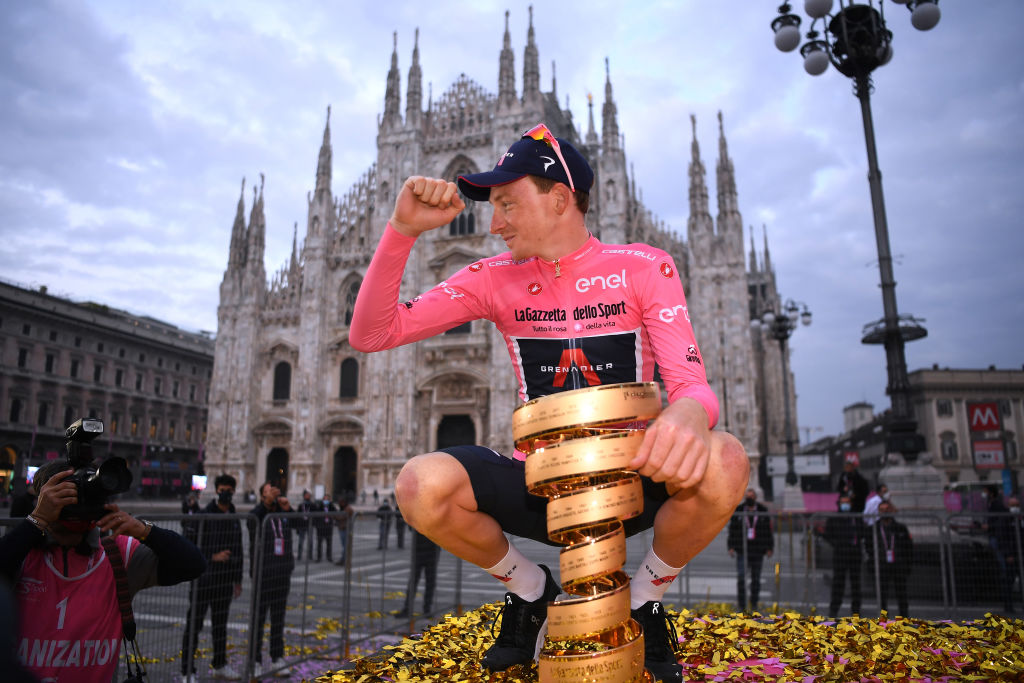
CN: The UCI gave Grand Tour organisers an extra wildcard this year but it didn’t lessen the polemics surrounding your decision to leave out Androni-Sidermec initially… [They later took the place of the suspended Vini Zabù – ed.]
MV: I even told President Lappartient I’d nearly prefer to have no wildcards, because if he doesn’t give all me the wildcards I need for my country’s teams, then I’m always in a complicated situation. If there are three wildcards and four Italian teams, then who do I leave out? Whatever I do, it’s a problem.
But I also want to say that there are too many WorldTour teams. My idea, whether it’s right or wrong, is that there should be ten teams with the automatic right to participate, based on the WorldTour classification. That would be enough: ten teams and then maybe four more to invite. Because we don’t have twenty teams. I don’t want to create a polemic at the Giro, but if you look at the teams with the automatic right to compete, how many do you think I would have left at home?
Many teams at the Giro haven’t brought a great team, and I can understand that, because it’s hard to manage a whole calendar at a high level. But ten teams plus four invitations – that’s enough. Why do we have twenty?
Coming back to the wildcards, adding a 23rd team isn’t the solution either: it’s only an additional cost. Of course, we want to protect Italian cycling, but while Italy has had good riders and managers over the last 15 years, it hasn’t managed to put together a WorldTour team. And we’re not going to recover by doing the same thing as before.
We have to start from scratch, with small teams, development programmes for young riders to bring them to a certain level. Otherwise, we’re back in the same scenario, where some riders are turning professional simply because somebody else is paying their salary on a team. And that’s not right.
CN: What economic impact has the pandemic had on the Giro? We know that the foreign starts bring in significant revenue and this is now the third year in a row that the race has started in Italy. And I would imagine Italian cities and towns are also struggling to justify spending money on a bike race at a time like this.
MV: The effect is already significant because foreign starts bring in higher revenue. Compared with the past, there’s been a decrease in revenue and, on the other hand, there’s been an increase in costs. The scissors is very important at the moment…
With Italian cities right now, we’re down about at least 20% on what we would normally receive. Why? Because these cities are making an investment and while they still have the promotional reach of television, they are missing the human aspect of the big crowds. And if the people of the town can’t come out to watch the race, then it’s difficult for the town to justify spending money on it.
On the other hand, maintaining the coronavirus bubble costs much, much more. This year like last, we have a lot more barriers at the start and finish to fence off the buses and so on. You have to multiply that by 21 stages, and then you have the cost of all the tests. I totted it up and on the Giro our costs are up by €1.2 million, more or less, due to the pandemic. It’s things like the barriers, the hotels, the tests – all costs that weren’t there two years ago, in other words.
It’s €1.2 million extra in costs and then you’re losing €2 or 3 million in revenue, so you’re suddenly down €4 or 5 million on previous years, and that’s without talking about the additional impact of foreign stages. It’s true that they gave us a higher fee, but they also give us more visibility. If you look at the Israel Grande Partenza, a lot of money had to be spent on the logistics of getting the teams there and back. In the end, the revenue it brought in was similar to the other foreign starts.
But for me, a foreign Grande Partenza is also valuable to the Giro because of the visibility it offers. It shows the world that there’s not just ASO, there is another company, RCS Sport, capable of putting on big events all over the world. It’s a way of accrediting yourself in the market as a possible partner for work abroad.
CN: Is a foreign start a possibility again in 2022 or is it still too soon to say?
MV: There were foreign starts planned and there still are, but they’re on standby. We’ll see how things go. We have plans for foreign starts in the future, but we’re not going to announce them any time soon. For next year, we’ll see what’s happening by October and whether the vaccine is having an effect. Let’s hope so.
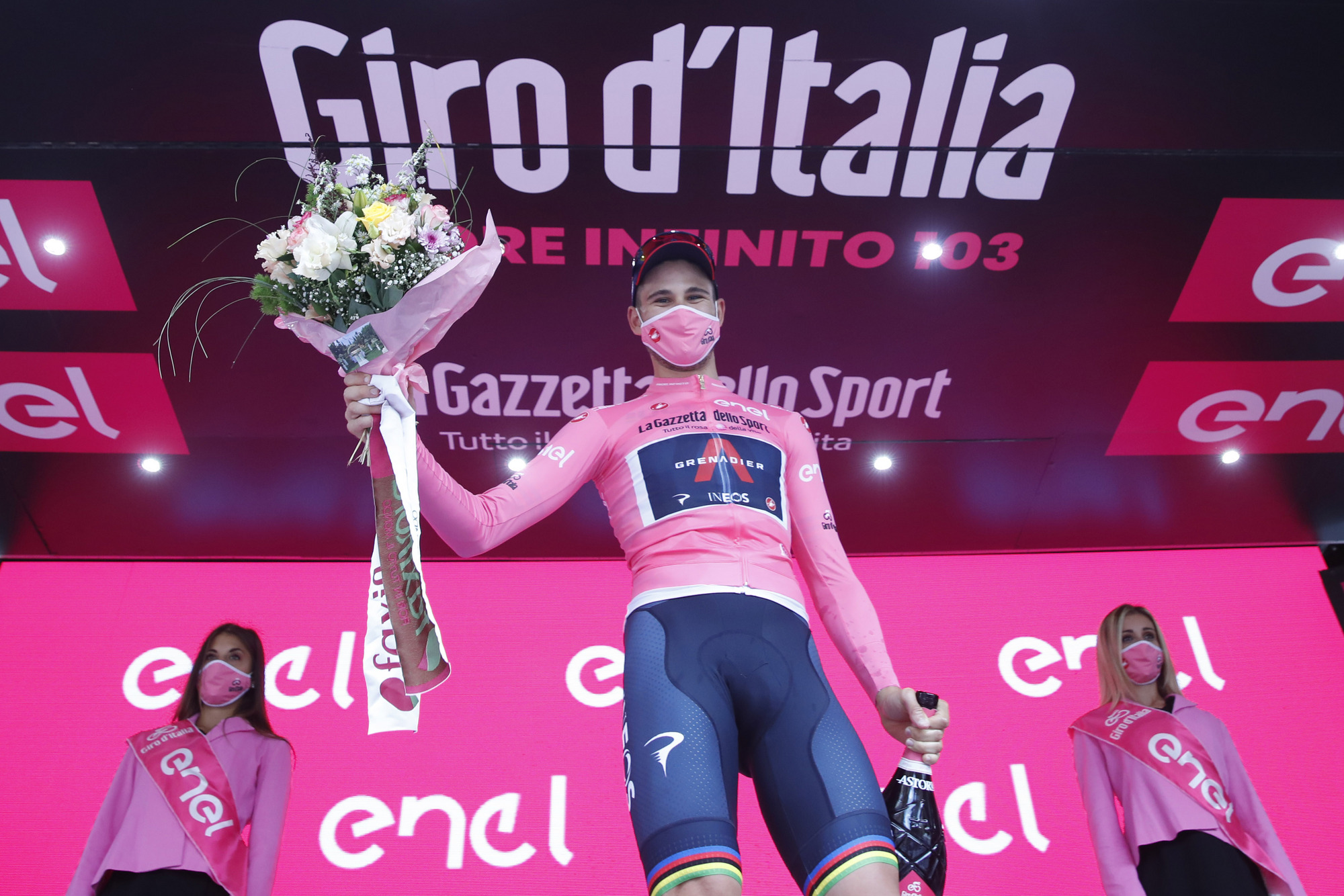
CN: The UCI gave Grand Tour organisers an extra wildcard this year but it didn’t lessen the polemics surrounding your decision to leave out Androni-Sidermec initially… [They later took the place of the suspended Vini Zabù – ed.]
MV: I even told President Lappartient I’d nearly prefer to have no wildcards, because if he doesn’t give all me the wildcards I need for my country’s teams, then I’m always in a complicated situation. If there are three wildcards and four Italian teams, then who do I leave out? Whatever I do, it’s a problem.
But I also want to say that there are too many WorldTour teams. My idea, whether it’s right or wrong, is that there should be ten teams with the automatic right to participate, based on the WorldTour classification. That would be enough: ten teams and then maybe four more to invite. Because we don’t have twenty teams. I don’t want to create a polemic at the Giro, but if you look at the teams with the automatic right to compete, how many do you think I would have left at home?
Many teams at the Giro haven’t brought a great team, and I can understand that, because it’s hard to manage a whole calendar at a high level. But ten teams plus four invitations – that’s enough. Why do we have twenty?
Coming back to the wildcards, adding a 23rd team isn’t the solution either: it’s only an additional cost. Of course, we want to protect Italian cycling, but while Italy has had good riders and managers over the last 15 years, it hasn’t managed to put together a WorldTour team. And we’re not going to recover by doing the same thing as before.
We have to start from scratch, with small teams, development programmes for young riders to bring them to a certain level. Otherwise, we’re back in the same scenario, where some riders are turning professional simply because somebody else is paying their salary on a team. And that’s not right.
CN: What economic impact has the pandemic had on the Giro? We know that the foreign starts bring in significant revenue and this is now the third year in a row that the race has started in Italy. And I would imagine Italian cities and towns are also struggling to justify spending money on a bike race at a time like this.
MV: The effect is already significant because foreign starts bring in higher revenue. Compared with the past, there’s been a decrease in revenue and, on the other hand, there’s been an increase in costs. The scissors is very important at the moment…
With Italian cities right now, we’re down about at least 20% on what we would normally receive. Why? Because these cities are making an investment and while they still have the promotional reach of television, they are missing the human aspect of the big crowds. And if the people of the town can’t come out to watch the race, then it’s difficult for the town to justify spending money on it.
On the other hand, maintaining the coronavirus bubble costs much, much more. This year like last, we have a lot more barriers at the start and finish to fence off the buses and so on. You have to multiply that by 21 stages, and then you have the cost of all the tests. I totted it up and on the Giro our costs are up by €1.2 million, more or less, due to the pandemic. It’s things like the barriers, the hotels, the tests – all costs that weren’t there two years ago, in other words.
It’s €1.2 million extra in costs and then you’re losing €2 or 3 million in revenue, so you’re suddenly down €4 or 5 million on previous years, and that’s without talking about the additional impact of foreign stages. It’s true that they gave us a higher fee, but they also give us more visibility. If you look at the Israel Grande Partenza, a lot of money had to be spent on the logistics of getting the teams there and back. In the end, the revenue it brought in was similar to the other foreign starts.
But for me, a foreign Grande Partenza is also valuable to the Giro because of the visibility it offers. It shows the world that there’s not just ASO, there is another company, RCS Sport, capable of putting on big events all over the world. It’s a way of accrediting yourself in the market as a possible partner for work abroad.
CN: Is a foreign start a possibility again in 2022 or is it still too soon to say?
MV: There were foreign starts planned and there still are, but they’re on standby. We’ll see how things go. We have plans for foreign starts in the future, but we’re not going to announce them any time soon. For next year, we’ll see what’s happening by October and whether the vaccine is having an effect. Let’s hope so.

Barry Ryan was Head of Features at Cyclingnews. He has covered professional cycling since 2010, reporting from the Tour de France, Giro d’Italia and events from Argentina to Japan. His writing has appeared in The Independent, Procycling and Cycling Plus. He is the author of The Ascent: Sean Kelly, Stephen Roche and the Rise of Irish Cycling’s Golden Generation, published by Gill Books.
